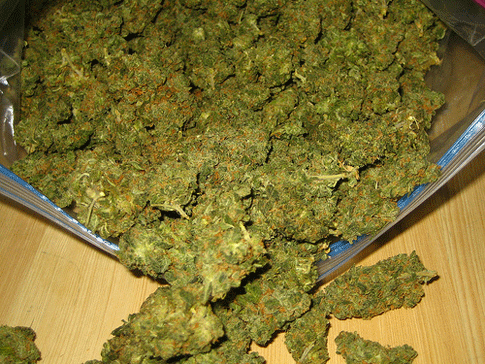A Synthetic Solution for a Legal 4:20
Synthetic marijuana brand Spice may still technically be legal in the United States, but it’s quickly getting banned around the world

Legal-ish alternatives to marijuana exist, you just need to know where to look…er, smell. Apparently that’s what someone learned when they put the herbal incense brand “Spice” in their pipe and smoked it. The results were, like, totally rad, dude. It turns out Spice contains the synthetic substance JWH-018, which is incredibly similar to the main active component of marijuana. Although sold legally in many countries, governments around the world are lining up to put the kibosh on the Spice party.
Spice has been on the market since 2002, but it wasn’t until December of last year that German pharmaceutical company TCHPharm announced JWH-018 was found as one of the active components in at least three versions of Spice. On January 19th, the University of Freiburg in Germany announced the other main active substance in Spice is an analog of the synthetic cannabinoid CP 47,497. Three days later the German government added CP 47,497 to its controlled drug schedule, making Spice illegal. Austria, France and Poland were quick to follow.
The manufacturer and online sales outlets are unwilling to ship Spice to the U.S. This is most likely due to the Federal Analog Act, which allows any chemical “substantially similar” to an illegal Schedule I or II drug to be treated as if it were also in Schedule I, but only if it is intended for human consumption. It seems the “intended for human consumption” part is what’s keeping things oh-so-murky.
Isn’t there a pro-incense lobby out there with Obama’s ear?